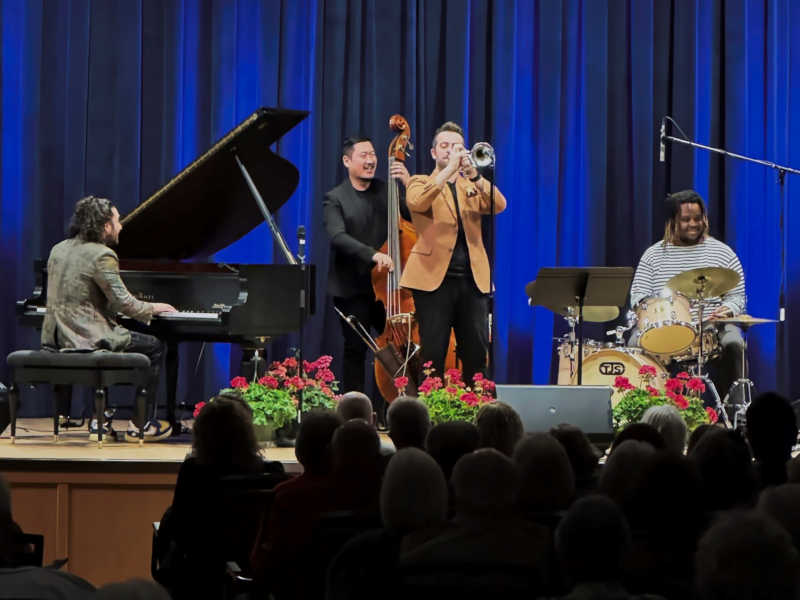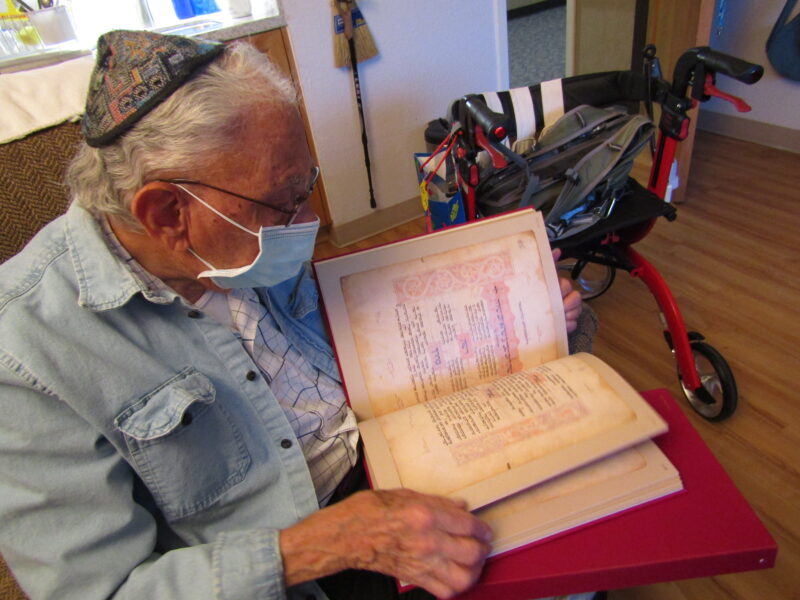When Dr. Sheldon Winkler retired from Temple University in January 2006 as professor emeritus (where he previously served as chairperson of the department of prosthodontics and dean of research, advanced education and continuing education) he started a second career as an author and speaker on the music of the Second World War.
Dr. Winkler attended public school during America’s participation in World War II. During music classes, students learned the lyrics to war-related songs. Even if the memorization of lyrics had not been required, the continual playing of war songs on the radio, on records, in the movies and on loudspeakers inside and outside stores imprinted those songs on a generation of young people.
Dr. Winkler’s mother started teaching him piano when he was very young. He formed a band in high school that played at college dances, social functions and in Catskill Mountain hotels in New York State and Orange Mountain hotels in New Jersey until he completed college and dental school. Occasionally Dr. Winkler appeared on the radio as a soloist. While his band sometimes played music from World War II, his bandmates strongly resisted efforts to include war songs in the band’s repertoire. Dr. Winkler’s love of music stayed with him all of his life. He started collecting information on the music of WWII a number of years before his retirement and had several articles published in World War II History magazine. His goal was to prepare a book on the music of the war years. Now a resident of Scottsdale, he achieved his goal after his retirement from academics and research.
“The Music of World War II: War Songs and Their Stories” was released in March 2013 by Merriam Press, a publisher of military history with an emphasis on WWII. In honor of Jewish Book Month, he will speak at Katz Jewish Community Center in Cherry Hill, NJ, on Nov. 17. Dr. Winkler says, “Most of the songs described in my book were written by Jewish composers and/ or lyricists.”
Dr. Winkler shares this story on another notable bit of writing that combined his heritage and one of his major interests: “I first visited Israel in 1958, when the current location of the dental school in Jerusalem was an empty lot, with a sign announcing the eventual construction of a dental college. I visited the temporary dental school and wrote an article about the school for a dental journal. That most probably was the first article on a dental school in Israel to appear in an American dental journal.” Winkler returned to Israel several times and presented
guest lectures at dental schools in Tel Aviv and Jerusalem. As director of continuing education at Temple University School of Dentistry, he arranged a continuing education trip for Jewish dentists to Israel and took part in the lecture series. The majority of his writing career has focused on dentistry. Dr. Winkler founded the journal Implant Dentistry, which he edited for six years, and is currently senior editor of the Journal of Oral Implantology. Currently the president of the American Academy of Implant Prosthodontics and executive director of the Academy, he has authored or co-authored six textbooks (including Essentials of Complete Denture Prosthodontics) and approximately 185 articles and chapters in professional journals and textbooks.
With The Music of World War II, he has shifted his writing to his lifelong interest in music. Some of the most memorable and enduringly popular music of the 20th century was written during the Second World War. The book tells the stories behind the origins of many of these musical compositions, some of which have survived to become standards and are popular to this day. With patriotism at an all-time high, the war effort became an integral part of the entertainment industry, creating an emotional wartime dreamworld of heroes, love, remembrance, reflection and introspection.
Among the songs reviewed are “A Nightingale Sang In Berkeley Square,” “As Time Goes By,” “Der Fuehrer’s Face,” “God Bless America,” “Johnny Zero,” “Lili Marlene,” “Miss Pavlichenko,” “My Sister and I,” “Praise the Lord and Pass the Ammunition,” “Rosie the Riveter,” “The Ballad of Rodger Young,” “The Last Time I Saw Paris,” “The White Cliffs of Dover” and “We’re Gonna Hang Out the Washing on the Siegfried Line.” Stories of selected WWII movies are also recounted in the book. Among them are “Casablanca,” “The Last Time I Saw Paris,” “This Is the Army” and “The White Cliffs of Dover.” The book discusses in detail the relatively unknown relationship of the wartime New York Office of British Security Coordination in Rockefeller Center and three popular wartime songs: “The White Cliffs of Dover,” “A Nightingale Sang in Berkeley Square,” and “My Sister and I.”
Dr. Winkler describes World War II as one of the most productive periods of American popular music and notes wartime songs were indispensable for boosting morale at home and wherever our troops were stationed overseas. He believes that “there may never be another period of time where service men and women, and their families, friends and neighbors, will be so eager to express their patriotism through popular music.”
As Dr. Winkler likes to say, “The war is long over, but the songs live on.”






